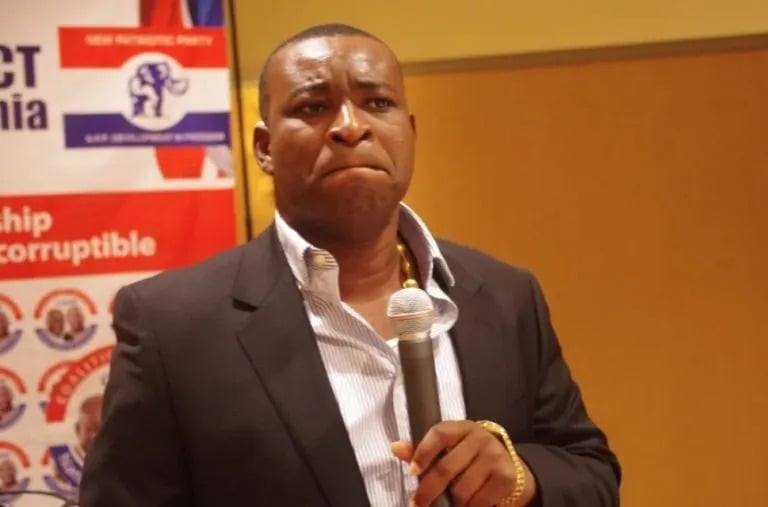The incident at Chairman Wontumi’s residence underscores the complex interplay of politics, power, and perceived persecution in Ghana’s political landscape. Bernard Antwi Boasiako, popularly known as Chairman Wontumi, the Ashanti Regional Chairman of the ruling New Patriotic Party (NPP), found himself at the center of a controversy following a Friday morning operation by National Security operatives at his home in Paraku Estate, Kumasi. He vehemently denounced the operation, characterizing it as a politically motivated act of intimidation orchestrated by the opposition National Democratic Congress (NDC) and President John Mahama. Wontumi’s accusations paint a picture of targeted harassment, alleging that the raid was part of a broader campaign to silence and undermine him due to his prominent role within the NPP.
The National Security operatives presented a search warrant upon arrival, asserting the legitimacy of their operation. However, their efforts to search the premises and potentially apprehend Wontumi were thwarted as they were unable to gain access to the residence. This unsuccessful attempt to enter the property adds another layer of complexity to the incident, raising questions about the specific intelligence or justification that led to the operation in the first place. The failure to execute the warrant also fueled Wontumi’s claims of political targeting, suggesting that the operation was more about intimidation than a genuine pursuit of legal processes.
In the aftermath of the incident, Chairman Wontumi took to the airwaves on Wontumi FM, expressing his outrage and questioning the rationale behind the security operation. He framed the incident as an attack on his fundamental rights as a Ghanaian citizen, asking rhetorically, “Am I not a Ghanaian anymore? Now that you’ve won the election and become President, does that mean I’m no longer a Ghanaian?” This rhetorical question underscores Wontumi’s perception of being unfairly targeted due to his political affiliation and his active role in opposing the current administration. His pronouncements aimed to rally public support and portray him as a victim of government overreach.
Wontumi’s impassioned plea to the public and NPP supporters to rise against what he termed government oppression further highlights his strategy of mobilizing support and framing the incident as a broader attack on the NPP. His call to action, “Ghanaians, rise! Arise, Ghanaians! All NPP supporters should rise. It is because of you that Mahama is treating me this way,” seeks to transform the incident into a rallying cry for the party and position himself as a symbol of resistance against perceived government oppression. He directly links the alleged targeting to his role within the NPP, portraying himself as a victim of political persecution for simply carrying out his duties as a party chairman.
Emphasizing the purely political nature of his role within the NPP, Wontumi sought to differentiate his position from any governmental or state-affiliated capacity. He posed a series of rhetorical questions, “Was I ever a Vice President? Have I ever chaired a board? Have I ever been a CEO? Was I ever a minister? I am only the chairman of a political party, and it is my duty to campaign for my party.” This line of questioning aimed to demonstrate that he holds no official position that would warrant the attention of National Security operatives, further bolstering his claims of political motivation behind the raid. He portrays his role as simply that of a party official engaging in legitimate political activities, implying that the raid was an overreach of power intended to stifle political dissent.
Chairman Wontumi’s accusations extend beyond the immediate incident, alleging a long-standing campaign by the government to undermine him, particularly targeting his financial interests. He claimed, “You collapsed my business back in 2013. Since you assumed office, you’ve halted all my operations. Even the bank account I rely on has been frozen.” These allegations paint a picture of systematic persecution, suggesting that the government has been actively working to cripple him financially as a means of silencing his political activities. This narrative of financial persecution further strengthens Wontumi’s portrayal of himself as a victim of political machinations, aiming to garner sympathy and support from the public and within the NPP. The incident at his residence, in this context, becomes just one episode in a larger narrative of alleged government harassment.














